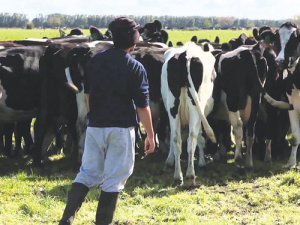Do you know or understand the costs to your business when people don’t perform as you need them to? We know it costs time, money, energy and effort, and results in frustration and stress.
Think about the potential financial and environmental effects of the following:
An effluent irrigator not operating correctly
Animal health issues like lameness or mastitis not identified or treated in a timely manner, resulting in increased treatments and longer recovery times
Feed budgeting or allocation not monitored, resulting in greater need for imported supplement usage
Onfarm maintenance not done regularly or at all, resulting in continuous breakdowns on farm.
The consequences of poor planning and execution are reflected in a farm’s physical performance and directly impact the financial performance of the business.
Employers and mangers are often spending large amounts of time on a daily, weekly and monthly basis seeking to mitigate the actions of others onfarm. Fixing mistakes, solving problems and stepping in to do jobs others have not performed are part of the daily routine on most farms where staff are employed.
But why is this situation so common and repeated again and again on many farms on a daily basis?
Nationally the average herd size has almost tripled in the last 30 seasons, and has increased by almost 200 cows in the last 20 seasons, while milk solids production in 2016-17 was 41% higher than in 2006-07. The increase in the scale of farms has been accompanied by the need for extra staff.
Traditionally smaller farms of under 300 cows were family-run or sole-operator farms. The most important decisions on budgets, cows and feed were made to ensure milk is produced as economically as possible. Issues were addressed as they arose with little or no requirement for consultation.
As the farm size and cow numbers increase, the business can no longer be operated by one person, and extra staff are required, to ensure the farm can function long-term at a sustainable level, and it is at this stage that staff management and people become as important as budgets, cows and grass.
As the number of staff you employ increases, your ability to lead, delegate, coach and mentor becomes increasingly important. So how do we set ourselves, our farms and our teams up for success?
Boosting productivity, finding more time to focus on the business and removing the activities onfarm that don’t add value to the business enable us to focus on the things we can control and establish how to best support each team member to perform to their potential every day.
Establishing and understanding the difference between ‘can’t do’ and ‘won’t do’ is a game-changer in people management. Often when there is a problem we blame the person for not following instructions, for lack of common sense or assuming they should know how to complete a task.
However before concluding the individual is at fault it is critical to ask the following five questions:
Did the person have the:
knowledge to do the job?
skill to do the job?
correct method to do the job?
right tools to do the job?
enough resources to do the job?
If the answer is ‘no’ then it is a ‘can’t do’ situation.
If it is ‘can’t do’, the solution requires creating and continually improving our processes to help our teams succeed. The farm manager needs to provide training, have an agreed standard operating procedure, provide the right tools and have enough manpower or resources to make the workload doable.
We are focused on improving the skills, attitudes and knowledge of our team. The more skills they have the more they can contribute and increase our value-adding activity.
However if the answer is ‘yes’ to the above questions then it is a ‘won’t do’ situation. It is now about employee behaviour, accountability and increasing awareness of consequences.
When looking for the root cause of a behaviour it is critical to establish if it’s a ‘can’t do’ or a ‘won’t do’. Often onfarm it is presumed 90% of the time it is a ‘won’t do’; in fact it is more likely to be a ‘can’t do’.
We can’t hold people accountable to our standards if we haven’t set them up for success. So when things go wrong we need to review what happened and why and establish the root cause of the problem.
If the outcome is a ‘won’t do’, this needs to be addressed by holding people accountable and increasing awareness. Often when people don’t do what we want them to onfarm we say nothing. We think, “they’ll know they did it wrong. They know how I want it. They’ll know next time”.
But actually sometimes people might have all the resources for ‘can do’ but they don’t understand why things are important. If we don’t give them feedback when they get it wrong, what are we saying? It isn’t important? It is ok not to do it? We shift the boundaries of expectation. If we give feedback we raise awareness of what is acceptable, what we expect.
HR is no longer about just meeting legal requirements such as ACC, and ensuring hourly minimum wage rates and holiday pay are calculated correctly.
Good, basic staff management involves setting up a quality work environment, from recruiting the right people to establishing simple repeatable procedures onfarm that are easy to implement where a team understands the business’s long-term vision and everyone is working towards the same outcome.
The most productive, profitable farm businesses don’t just have a great leader; they have a great team which is set up for success.

















